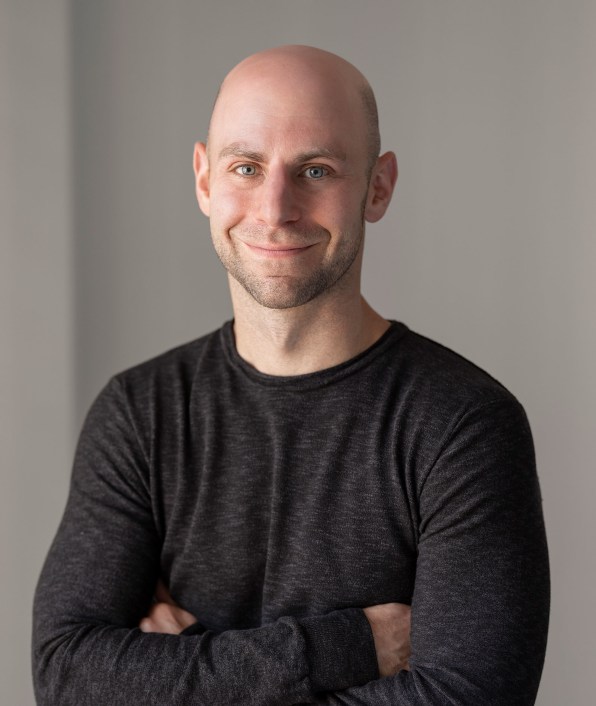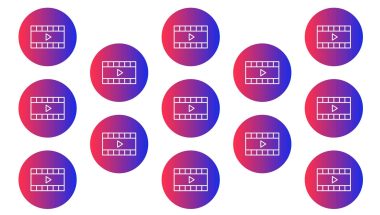- | 8:00 am
Organizational psychologist Adam Grant explains why we should normalize failure
The Wharton professor talks about how employers can keep morale up during a down market, and why it’s never a bad time to experiment.

As mass layoffs and sky-high inflation continue to shake the economy, it seems the fear of a potential recession is on everyone’s mind these days.

Fast Company sat down with organizational psychologist and Wharton professor Adam Grant at BetterUp’s Uplift conference in San Francisco to discuss how employers can keep morale up during a down market, and why it’s never a bad time to experiment. The following conversation is lightly edited for clarity.
Fast Company: This has obviously been a really bad few months for workers, especially in the tech sector. And you’ve talked about generosity burnout, or when people invest so much of their time in others that they just exhaust themselves. How do employers foster a workplace of generosity when employees feel maybe betrayed by layoffs?
Adam Grant: I love the framing. I think it’s exactly right. If you want a culture of generosity, you have to model it as an employee, right? So I think that means leaders and managers going above and beyond to take care of their people. Where does that start? I think it starts with finding out what are people’s biggest challenges and struggles, and then trying to intervene to improve the circumstances.
The last couple of decades of science on burnout would tell us you can do three things. Number one, you have to reduce the worst demands, the most stressful parts of a job. Number two, you give people more autonomy and control to handle the demands on their plate—which we’ve had a lot of debate about the remote question. But I think it’s too narrow to talk about just where we work. People want choices about when they work, how much they work, who they work with, what they work on, what they get to learn. So I think we need to give people that kind of flexibility and control. And then, finally, support. It’s amazing how many organizations don’t have any system for recognizing when somebody is overloaded. Like, I’m sure you’ve had multiple deadlines collide at some point in your career, right? Really helpful for your manager to know that and then potentially give you a team to help carry the load. Those are the kinds of interventions I would start with, but I think it has to start with care from the top.
FC: It seems likely that the corporate monoliths are gonna snap back into their old ways just because they’re spooked by the downturn. And maybe it’s not the best time for experimentation. What do you say to that?
AG: I would say, there’s never a bad time for experimentation because experimentation is how you learn. And if you’re afraid to run experiments, you are afraid to learn new things. And that is not an organization that I would want to invest in or work for or buy from. An organization that’s afraid to grow and evolve is choosing to stagnate and eventually become irrelevant. I think given that we’re in the midst of a downturn, I think that employees are expecting organizations to do something to improve the status quo. You could frame running experiments as a way of saying, “Look, we realize working conditions are not optimal right now. We want to make them better. And so we’re going to try a few things.” And sometimes you might get lucky, and you’ll be part of an experiment that really works and then you become the proof of concept. You can help to spread it and model it and scale it. Other times, you’re the early victim of something we never should have tried, but we get to spare other people of that experience and that’s useful and you should expect us to try a lot of things and some of them are going to work and some of them aren’t. If you wait until you have a lot of slack resources and capacity to experiment, you’re probably letting yourself get complacent.
FC: And that’s the same for large companies that are answering to public shareholders and the board and smaller startups?
AG: We’re at a point now where we live in a stakeholder world, right? Yes, shareholders want quarterly returns, but you also have to care about the attitudes of your employees and your customers, among others. And I think that good investors don’t want you to maximize your quarterly returns at the expense of your long term viability as an organization. And I think one of the things that I haven’t seen enough discussion of is, we had the whole great resignation, that’s supposed to be behind us. Well, I think what a lot of leaders are missing, though, is that your most talented people are the ones who always have options. And if you treat them poorly, and you don’t give them meaningful opportunities for freedom and growth, they’re gonna find someone who does. If I were running an organization right now, I would be running a bunch of experiments to ask, how do we make sure that the people we are most excited to be able to attract and motivate and retain don’t start looking over their shoulder, wondering if there’s something better out there?
FC: Or if they can create something better?
AG: Exactly.
FC: That kind of goes into my next question: What would your advice be for a self-proclaimed aspiring leader or entrepreneur who wants to attract followers and, subsequently, funding in a downturn?
AG: You’re thinking about a startup founder who has an idea. They want customers and investors, right. What do they do?
FC: Yeah, when the market is bad, how do you stand out?
AG: The first mistake that I see a lot of founders make is they lead with their solution, forgetting that nobody cares about your solution until they know what problem it’s solving. There’s a shiny-object syndrome of like, “Here’s my startup,” and I’m like, so what? I would say start with what is the thing that makes your life worse right now that your startup is trying to change or eliminate. The sort of maybe overused example that comes to mind right away is, I would never have pitched Uber by saying, I’m gonna give you an app so that you can get a cab. I don’t want a cab. I would start that pitch by saying, you know all those times when you’re waiting for a cab and you can’t catch one—either because it’s pouring and there aren’t enough available, or because you’re stranded in the middle of nowhere and cabs aren’t there. Wouldn’t it be amazing if you could call one?
So I think that’s the first thing I would advise any founder to do is amplify the problem. Highlight why it is really unacceptable that the status quo is this way and then show us how you’re going to change it. The other thing I would do is, I would say the research on rapid iteration is really compelling in showing that founders who run a lot of experiments and A/B tests end up learning faster than those who don’t. There was an incredible experiment done in Italy a few years ago of startup founders. Hundreds of entrepreneurs randomly assigned to either a control group or a scientific thinking group. The scientific thinking group doesn’t get any extra content or training. They just get a lens for viewing the world. They’re told your strategy is a theory. When you talk to potential customers, great opportunity to generate hypotheses.
And then when you launch a product or service, think of that as an experiment to test your hypotheses. The effect is staggering. The scientific thinking group rate brings in on average more than 40 times the revenue of the control group. It’s one of the largest effects I’ve ever seen as a social scientist. And the key mechanism in the data is those founders, once they learn to sort of see the world through a scientist’s goggles, are more than twice as likely to pivot. Instead of a doubling down on a failing product or a bad service, they realize that experiment falsified my hypothesis, now I need to rethink my vision or my strategy or my product to find better product-market fit. And it buys them all this flexibility. This is not unique to founders. This is true for leaders, right? You’d want to think about yourself as a hypothesis tester. Best way to test hypotheses that we talked about earlier is to run experiments. And if you do more of those, you will learn more, and eventually you will find something that attracts customers that appeals to investors. And it’s probably not going to be the first idea you had.
FC: Do you think that people are maybe reluctant to do that because they’re afraid of failing?
AG: The fear of failure is a huge, huge barrier to experimentation. I think that’s a misunderstanding of what experimentation is. There’s the old Thomas Edison line of like, “I didn’t fail. I found 10,000 ways that didn’t work to invent the light bulb.” I don’t know anybody who feels that way. Like I don’t know that he felt that way. It was a good line, but I think that the reality is that no one wants to throw a party when they fail. I don’t think celebrating failure is realistic. I do think we can normalize failure. And I think that part of thinking like a scientist is recognizing that you want to maximize the number of experiments you run, not the number of successful experiments that you run. Because we know that the more experiments you run, the more good ideas you’ve stumbled onto. And that I think was the Edison lesson, right? And it’s an empirical finding that repeats across every field, not just inventors.
But artists and writers and scientists and people in all kinds of business jobs: The more ideas they test, the more they can discard bad ones and pursue promising ones, and so I think that just normalizing failure as part of the process of experimentation is probably important. I also think a lot of people are afraid to run experiments because there’s just a lot of uncertainty. And they don’t know what kind of world they’re going to enter into if they try something new; and it’s easier to stick to whatever is familiar, and that is a great way to manage your organization into obsolescence.





































